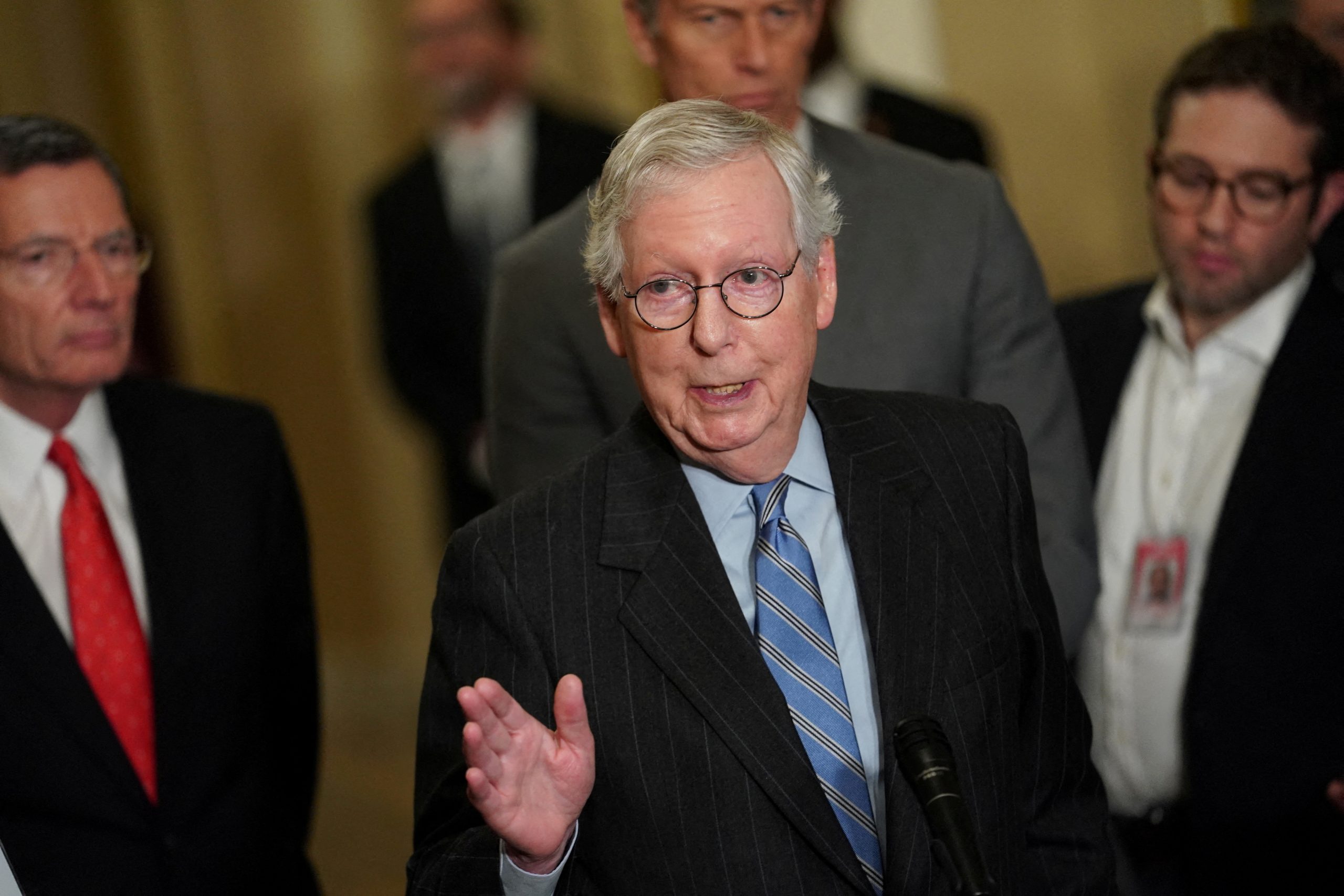
Willie R. Tubbs, FISM News
[elfsight_social_share_buttons id=”1″]
The feud between the top Republicans in the House and Senate continues to grow warmer and is now roping in other elected GOP officials.
At the heart of the matter is a split between two Republican camps over the leadership in both chambers as well as how much cooperation conservatives should offer Democrats during the waning days of the lame-duck session of Congress.
Rep. Kevin McCarthy (R-Calif.), the favorite to become Speaker of the House in January, has continued to be open about his belief that Senate Minority Leader Mitch McConnell (R-Ky.) is playing too nice with Democrats on an omnibus spending bill that will fund the government in the new year.
“They’re trying to jam us right before Christmas,” McCarthy said of Democrats during an appearance on Fox News’ “Hannity.” “Why would you ever move forward when there’s a change in power in 21 days where Republicans would have a stronger hand? We wouldn’t be talking about adding more money. We’d talk about decreasing.”
It’s an opinion broadly shared by numerous high-ranking Republicans in the House.
Wednesday, in a joint press conference headed by McCarthy, Representatives Steve Scalise (R-La.), Mike Turner (R-Ohio), and Elise Stefanik (R-N.Y.) all stated their opposition to passing the government spending bill at the 11th hour.
“The Democrat House, the Democrat Senate, the Democrat White House had all year to get funding taken care of…they blew through that deadline…They didn’t want the American people to see all the money that they were going to be spending,” Scalise said.
"The Democrat House, the Democrat Senate, the Democrat White House had all year to get funding taken care of…they blew through that deadline…They didn’t want the American people to see all the money that they were going to be spending.” – @SteveScalise pic.twitter.com/jBkidteoKD
— House Republicans (@HouseGOP) December 14, 2022
But McConnell has his allies, too. As first reported by The Hill on Thursday, conservative senators view McCarthy as picking a fight with an unnecessary adversary.
Texas Republican Sen. John Cornyn, who earlier this year was among the lead GOP negotiators on the firearms law that was passed at the behest of President Joe Biden, was among the more vocal supporters of McConnell and called McCarthy’s frequent criticisms of the minority leader as “not helpful.”
A different Republican Senator, under condition of anonymity, told The Hill, “I understand the politics of criticizing McConnell, but they need to have a relationship. McConnell’s got pretty thick skin but I think there’s a way for McCarthy to try to placate conservatives in the House without attacking McConnell.”
It was not lost on Cornyn that McCarthy is, as the Texas Senator told The Hill, “trying to navigate very difficult shoals,” a colloquialism by which Cornyn meant that McCarthy has still not assured himself the speakership and must take steps to court the farther right members of the House in order to get sufficient votes.
Garnering the support of the likes of Representatives Matt Gaetz of Florida, Andy Biggs of Arizona, Ralph Norman of South Carolina, Bob Good of Virginia and Matt Rosendale of Montana – all five of whom CNN reports continue to threaten to vote against McCarthy as speaker – will involve concessions and gestures.
Lashing out at McConnell, perhaps the least popular Republican with the portion of the GOP most loyal to former President Donald Trump, is one way to break through to the hardliners.
Trump, writing on Truth Social, indicated his approval of McCarthy’s tactics.
“Mitch McConnell has the power to get everything Republicans want, yet he’s giving it all away to the Democrats,” Trump wrote. “Why would he do that? The ‘Omnibus’ they’re working on is a disaster for our Country, and will further destroy our economy. It is yet another total betrayal of the great voters of America. Republicans have to stay strong and wait to negotiate a proper spending bill, and the debt ceiling, after taking control of the House on January 3rd!”
From a pragmatic standpoint, the internal feud is a matter of both McCarthy and McConnell working their advantage.
McCarthy will better serve the interests of Republicans at large if he is able to convince McConnell to delay the passage of the omnibus until after Republicans assume control of the House.
As Trump pointed out, Republicans should have a more dominant bargaining position in January. But this is a two-way street. Democrats will still have the ability to kill any House-backed bill in the Senate.
But the fact that Republicans will soon have more power is itself justification for McConnell to push for concessions from Democrats now. Never will the left be more likely to bend in the upper chamber than at present.
As reported by FISM, the Senate has passed a stopgap bill to fund the government through Dec. 23. This extra time was meant to give Republican negotiators in the Senate time to work on more concessions.
The key will be what, if any, concessions Republican senators can get out of Democrats.
While it is likely beyond the realm of possibility that McConnell is able to swing an omnibus bill that earns him the praise of Trump or the former president’s closest allies, it is possible the minority leader can negotiate a final bill that is palatable to conservatives in the short term.
Long term, looking to late 2023, the real battle between Democrats and Republicans, and possibly Republicans and Republicans, on government funding might actually be about a year away.
